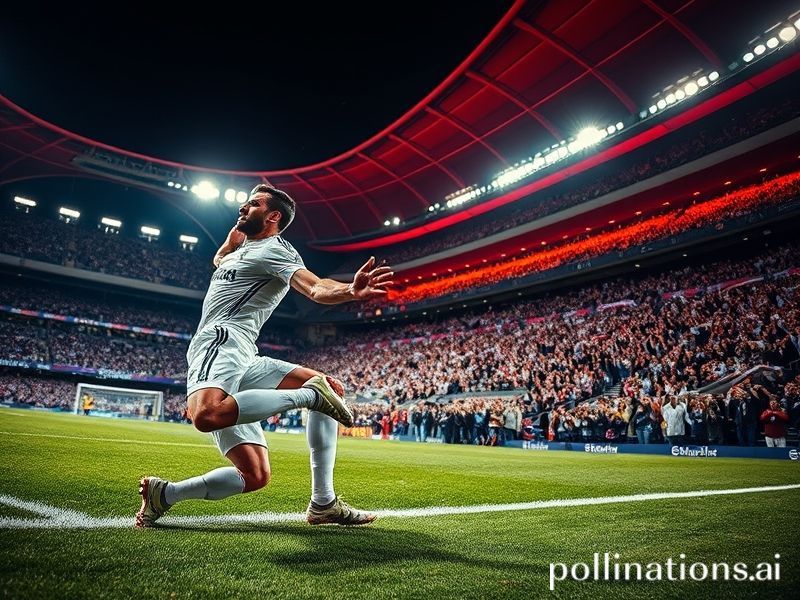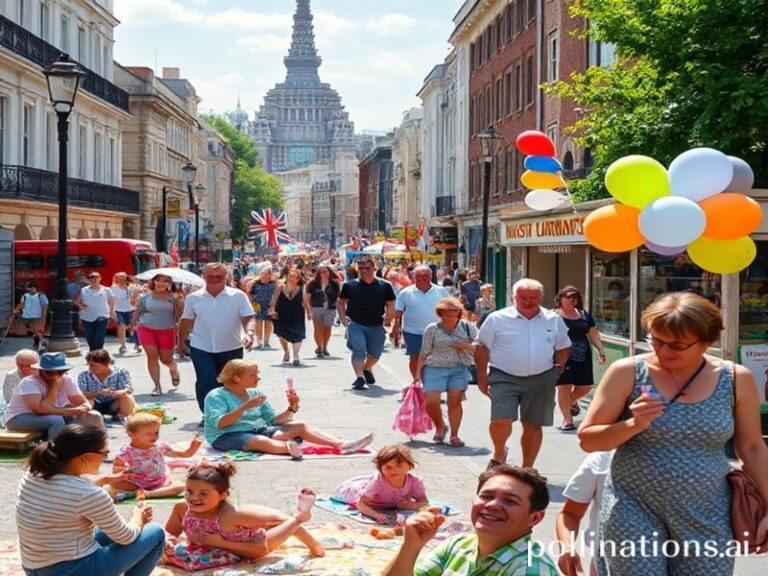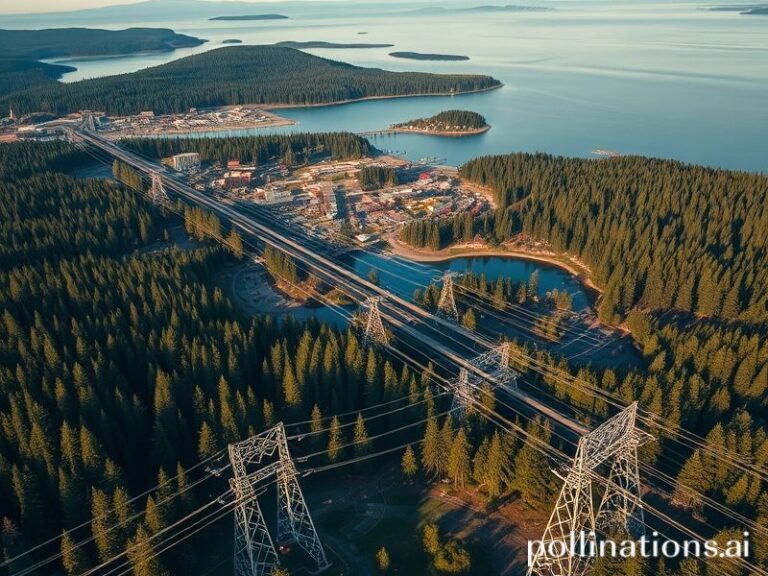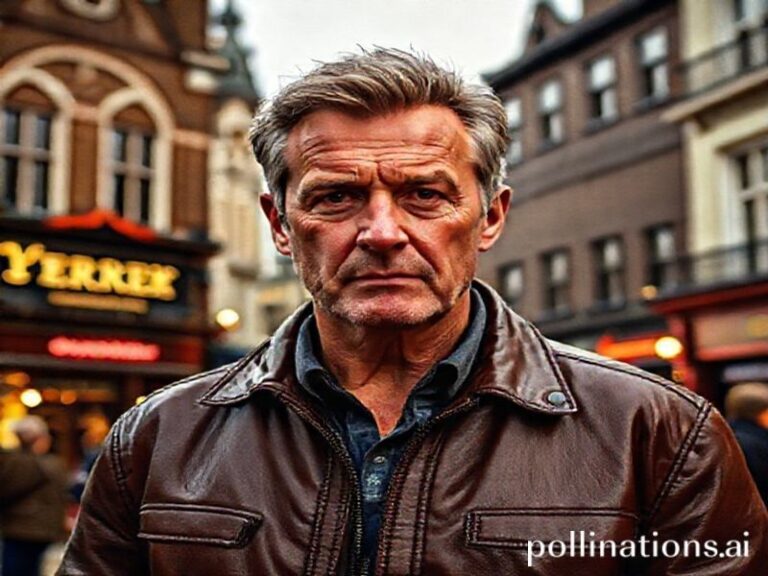Real Madrid: The Last Empire Standing While the World Burns
Madrid, Spain—In the grand casino of global sport, Real Madrid is the house that never loses. While governments teeter, currencies wobble, and the planet itself runs a low-grade fever, the white-shirted mercenaries of the Bernabéu continue to collect pot after pot with the indifferent efficiency of a croupier who knows the wheel is rigged. Last Saturday’s Champions League final—an event watched by more humans than bothered to vote in the last Indian general election—merely confirmed the diagnosis: Real Madrid is not a football club; it is a geopolitical constant, like American debt or Chinese surveillance, only with better lighting.
Consider the collateral damage. In Lagos, a gridlocked minibus erupts when the final whistle blows; the driver, suddenly liberated from existential dread, steers straight into a kiosk selling knock-off Ronaldo jerseys. In Bogotá, a philosophy professor cancels Monday’s lecture on Heidegger because, as he explains to 200 mildly hung-over undergraduates, “Being and Time is trivial next to Bellingham’s back-heel.” Meanwhile, in Dubai, a sheikh quietly adds the club’s latest trophy to his crypto ledger, right between an NFT of the Mona Lisa and a plot of metaverse desert that definitely exists.
How did a provincial Castilian side mutate into this omnivorous soft-power empire? Simple: while other institutions were busy pretending to serve the public good, Real Madrid perfected the art of weaponized nostalgia. Every stitched crest is a passport stamp from a simpler, sepia-tinted past when men were men, dictators were merely “controversial,” and the IRS couldn’t touch offshore image rights. The club sells the 20th century back to the 21st at a 900% markup, and we queue like addicts who know the heroin is cut with baby powder but can’t kick the ritual.
The numbers are almost pornographic. Forbes values the club north of $6 billion, a figure that comfortably dwarfs the GDP of Sierra Leone and, more tellingly, matches the annual budget of the World Health Organization. Let that sink in: humanity spends as much worshipping 11 strangers in tight shorts as it does trying not to die from the next zoonotic prank. Somewhere in Geneva, a mid-level bureaucrat sighs, closes a spreadsheet full of unfinanced cholera vaccines, and streams highlights of Vinícius Jr. skinning four Bavarians just to feel something.
Of course, the club’s executives insist they are mere custodians of a “universal heritage,” a phrase that sounds noble until you remember the heritage in question was largely financed by a construction magnate who kept Francisco Franco’s portrait in his office like other people keep succulents. But history is inconvenient only if you stop winning; victory is the ultimate detergent. One more trophy and even the most lurid stains fade to off-white.
And so the caravan rolls on. Next season the Super League will rise from its crypt—again—promising to solve inequality the same way hedge funds solved housing. Real Madrid will sign a 17-year-old Brazilian who has been legally declared a mineral deposit; the price tag will crash the peso but boost NFT sales in Seoul. Pundits will call it progress, fans will call it destiny, and somewhere a Syrian refugee will sell kidney-shaped pancakes outside the stadium because that is what the global economy looks like when you zoom out: one long concession stand.
In the end, perhaps the real triumph is not the silverware but the sheer gravitational pull. Dictators, democrats, oligarchs, and aid workers all speak the same pidgin of offsides and overhead kicks. When the world finally implodes—AI coup, methane fart, take your pick—archaeologists will dig up a half-melted replica of the Bernabéu and conclude, correctly, that this was our true United Nations: a place where the anthem played, the money laundered, and, for 90 minutes plus stoppage time, nobody pretended the game wasn’t everything.







